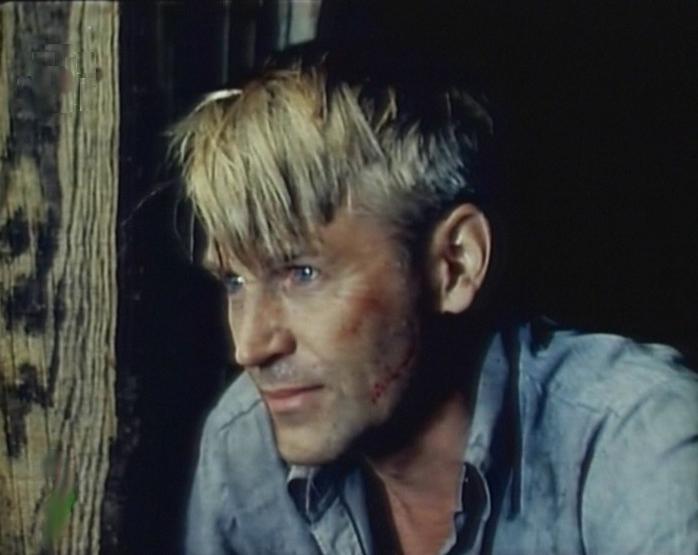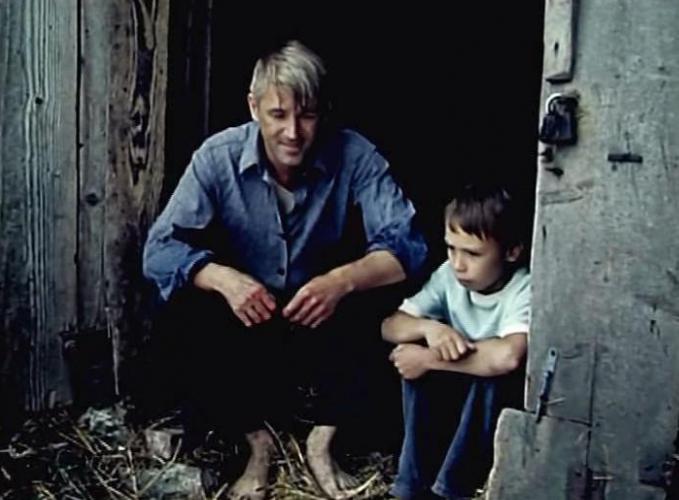Boris Vasiliev became an exponent of Orthodox morality in Soviet literature. He expressed his position not declaratively, but as the holy fathers did in their parables. Examples of non-possessive attitudes towards the life of the heroes of this Russian writer are not edifying and moralizing - even positive characters are by no means ideal. But they carry in themselves a righteous lifestyle. The simplest analysis leads to this thought. “Do not shoot white swans” is one of the works illustrating the Orthodox idea in the work of Vasiliev.
about the author
The writer of the Russian land was born in Smolensk, in 1924. His parents were nobles, his father was an officer who served in the Tsarist, and then in the Red Army. When the war began, Boris Vasiliev volunteered for the front, served in the fighter battalion, then in the airborne troops. After the shell shock, he studied at the military academy, tested new models of armored vehicles. In 1954, he realized that his calling was literature, he quit the army and began to write, at first only scripts. The performance "Officer" - the first test of the pen - turned out to be too bold for its time and was banned. However, the manners were not as cruel as very recently: the front-line author was left with a chance. After the feature films “Next Flight” and “Long Day” there was a long, almost ten-year pause, and then the film “Officers” won the hearts of the audience. Love her today.
The time of long creative downtime was difficult, the writer earned as much as he could (scripts of KVNov, film magazines, etc.), but he never hacked and was faithful to his life principles. The most striking pages of his military prose was the play "And the Dawns Here Are Quiet ...". Peaceful life is dedicated to the story "Do not shoot at white swans." An analysis of the work speaks of a single ideological line that permeates the entire work of this remarkable author.
Main character
Egor Polushkin is romantic by nature. In the village, with its practical life, this bright character trait is not appreciated. It seems that it was precisely about the contradiction of utilitarianism and the irrational desire for beauty that Vasiliev wrote his work (“Do not shoot at white swans”). A more detailed analysis, however, suggests the author’s deeper artistic purpose. Egor is not just a romantic - he resists money-grubbing. He hates earning money at all costs, and this is manifested in all his actions. Such people may often be considered stupid, but in reality this person cannot do the job without putting his whole soul into it. The analysis of the story “Do not shoot at white swans” directly indicates that we have before us a talented person who differs from others in his desire for creativity. The priority of self-expression before the benefit for Yegor is quite natural, because he looks like a man "not of this world." Whatever he takes, he tries to do everything in his own way, unconventionally and beautifully. Instead of the approved boat numbers, there are animals and flowers. Now each watercraft can be distinguished, but the authorities don’t like this way of marking, and all the pictures are ordered to be painted over. Yegor is called the “Poor Bearer,” he really has enough troubles.

Egor's relatives
The name of Polushkin’s wife is unusual - Kharitina (they named her that name at baptism). Everything would be fine if it were not for the need for everyday communication to use the shortened form. The unkind neighbors call her Harey, and the sister prefers to use the pseudo-border “Tina” to her. She is a good woman, but she does not understand her husband and even decides to part with him. However, later she realizes what kind of person lives nearby.
The sister, Maryitsa, was the initiator of the move of the Polushkin family to the village, where her husband received an enviable place as a forester. Fedor Ipatovich Buryanov is an important person, the distribution of wood depends on him, and he does not forget about his interests. The image of the money-grubber was brought out in his face by Boris Vasiliev (“Do not shoot at white swans”). An analysis of his personality leads to a depressing conclusion that he does not know such a concept as conscience. He mercilessly exploits his brother-in-law: he builds a strong house for him, having received in exchange a hut. The forest is stolen by the "big boss."
Sons
Polushkin’s son Kolya is growing up, to which the definition of “clean-eyed” fits. The guy is like a father, but more vulnerable than him, he has a very developed sense of empathy. The boy shows creative inclinations: he writes poems that his father uses for unobtrusive agitation for a careful attitude to nature. The complete antipode to him is the “heir” of Buryanov Vovk, who never suffers from empathy, seeks to grab his own benefits and often cries from insults inflicted on him, real and imaginary. Analysis of the novel “Do not shoot at white swans”, from the point of view of continuity of generations, is unequivocal, “a conflict of fathers and children” is not expected. However, he appears at Kolka and Yegor, but due to the fact that the main character once drank excess and behaved inappropriately. The son is so honest that he is not afraid to express his view of the situation, for which he gets a neck. Vovka is obviously not capable of such an act. He is very enterprising and even - not unsuccessfully - trying to sell a puppy whom he was going to drown.

Colleagues and bosses
Polushkin is surrounded by strangers who do not understand him and are insignificant - the simplest analysis suggests this. “Do not shoot white swans” is a story about the struggle between cunning and wisdom, money-grubbing with selflessness, dull practicality with the pursuit of beauty. In addition to the aforementioned rogue Buryanov, the plot also includes Phil and the Tortoise - “friends” -shabashniki, they eagerly drink with the main character, but just as vigorously take on him when Yegor, moved by compassion, impedes the predatory conditions exposed to the rural teacher for repairing her poor dwellings. Sazanov, who served as the head of the boat station, treats Polushkin tolerantly, but to a certain extent, until he crosses the boundaries formed in his mind by "life fatigue." In other words, he is a short-sighted person.
Conflict
There is no plot without conflict, and, of course, it arose, all that remains is to analyze it. “Do not shoot at white swans” - this is the name of the story, and not for the sake of a red word beautiful white birds are mentioned in it. They became a symbol of the scolded goodness that the main character wanted to bring to people. In order to return its beautiful inhabitants to Swan Lake , he buys birds. His opponents, even, rather, enemies, do not think of their best use, other than gastronomic. They jam fish, kill swans and do not stop at eliminating the barrier, so insignificant, in their opinion, as “some kind of one” Polushkin. This “bulldozer” psychology finds expression in the previous conflict that broke out over the burnt anthill, during which Yegor behaved inappropriately.
Hope
There are two other important characters that B. Vasiliev brought out in his novel (“Do Not Shoot the White Swans”). An analysis of the images of Yuri Petrovich Chuvalov and the rural teacher Nonna Yuryevna indicates the high decency of both heroes. Each of them is honestly engaged in his own business, they meet, and a serious relationship is established between them. They are developing not without problems, but in the end, everything ends successfully. It is characteristic that both Yuri and Nonna have a friendship with Yegor. It serves as a touchstone, although the guy himself is not inclined to confrontation, but, on the contrary, shows truly Christian humility in his opposition to evil. The images of two young people living in harmony with their own souls and the surrounding world create a joyful background, without which the ending of the work would look too pessimistic.
The final
Egor again acted irrationally, entering into conflict and going alone against drunk and cruel poachers (he was not capable of any situational analysis). “Do not shoot white swans” is a title-appeal with which the author addresses all people, warning them against cruelty. For his love of beauty, the main character paid with his life. Before his death, in a hospital bed, he forgives Fyodor Ipatovich, who absurdly came to him to “put up” with a bottle of French expensive cognac. To the investigator of his murderers, he did not give out kindness from the heart. There is no vengeance in the character of Polushkin. The image of Fili, who walks on his grave and cares for her, is indicative.
Will the lake be Swan again? The son of Kolka remained on earth, loving everything alive and beautiful. All hope for him.